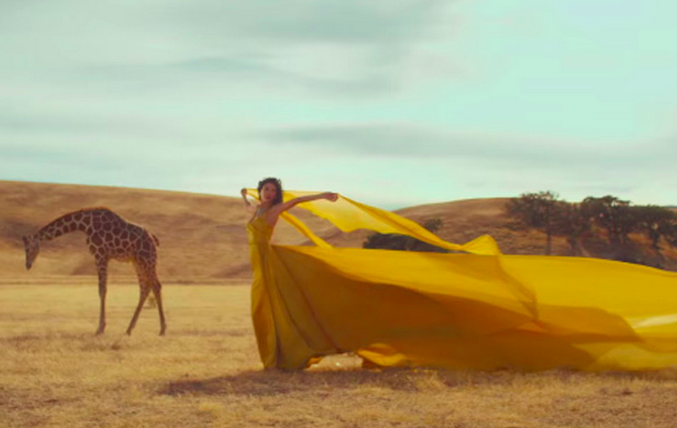Taylor Swift seems to be constantly under fire recently, with her mis-judged white feminism directed towards Nicki Minaj landed her in hot water and her violent and her revenge fantasy music video Bad Blood stirring the ires of fellow pop stars everywhere (cough, cough Katy Perry anyone?)
But Swift’s biggest slip up to date may just be very strong colonialist undertones present in her latest video for Wildest Dreams. Premiered at the 2015 VMAs alongside the company of her “squad”, aka a bevy of inhumanely good-looking women, Swift’s video has come under heavy criticism for the alleged whitewashing that goes on in the clip.
Filmed in an undisclosed African location and looking like some sort of sequel to The English Patient (sans Ralph Fiennes) there is nary a person of colour in sight, despite it being like, you know, AFRICA. The video details the passionate and seemingly unrequited love affair of two actors filming a romantic epic in 1950s Africa.
Starring Clint Eastwood, the video is undeniably glamorous and well-produced, however the disturbing racial and colonial undertones manage to undermine the artistic credibility of the video. Despite being set in Africa, the clip features only two African American men in filler positions.
Director of the video, Joseph Khan, has spoken out against the claims he whitewashed Wildest Dreams, saying it does include black people in it and was produced by a black woman and edited by a black man. Khan himself is Asian.
Khan, who also directed Swift’s other videos Blank Space and Bad Blood, said that, “We collectively decided it would have been historically inaccurate to load the crew with more black actors as the video would have been accused of rewriting history. This video is set in the past by a crew set in the present.”
But to depict a rose-tinged version of a colonial era is problematic on several levels. It romanticises the ‘best’ aspects of colonialism, that is the aspects which benefited the Whites ruling the colonies, and ignores the enormous suffering and brutality that imperialism wrought on their oppressed subjects.
Additionally Swift’s depiction of Africa objectifies the most iconic aspects of it: the wildlife, the animals, the golden sun sinking beneath the grassy planes of the savannah. This presents a troublingly narrow-minded and westernised view of Africa. Africa is not one big happy continent full of beautiful wildlife and untamed landscape; it’s a multicultural collection of 54 counties and 900 million people.
And it still suffers the consequences of colonial rule today, as evidenced by its poor economic performance, social discordance and the continual trans-generational trauma felt by those most affected. So for Taylor Swift to glorify one facet of Colonialism, while ignoring the irreparable harm it has caused to so many Africans, is understandably a little problematic.

